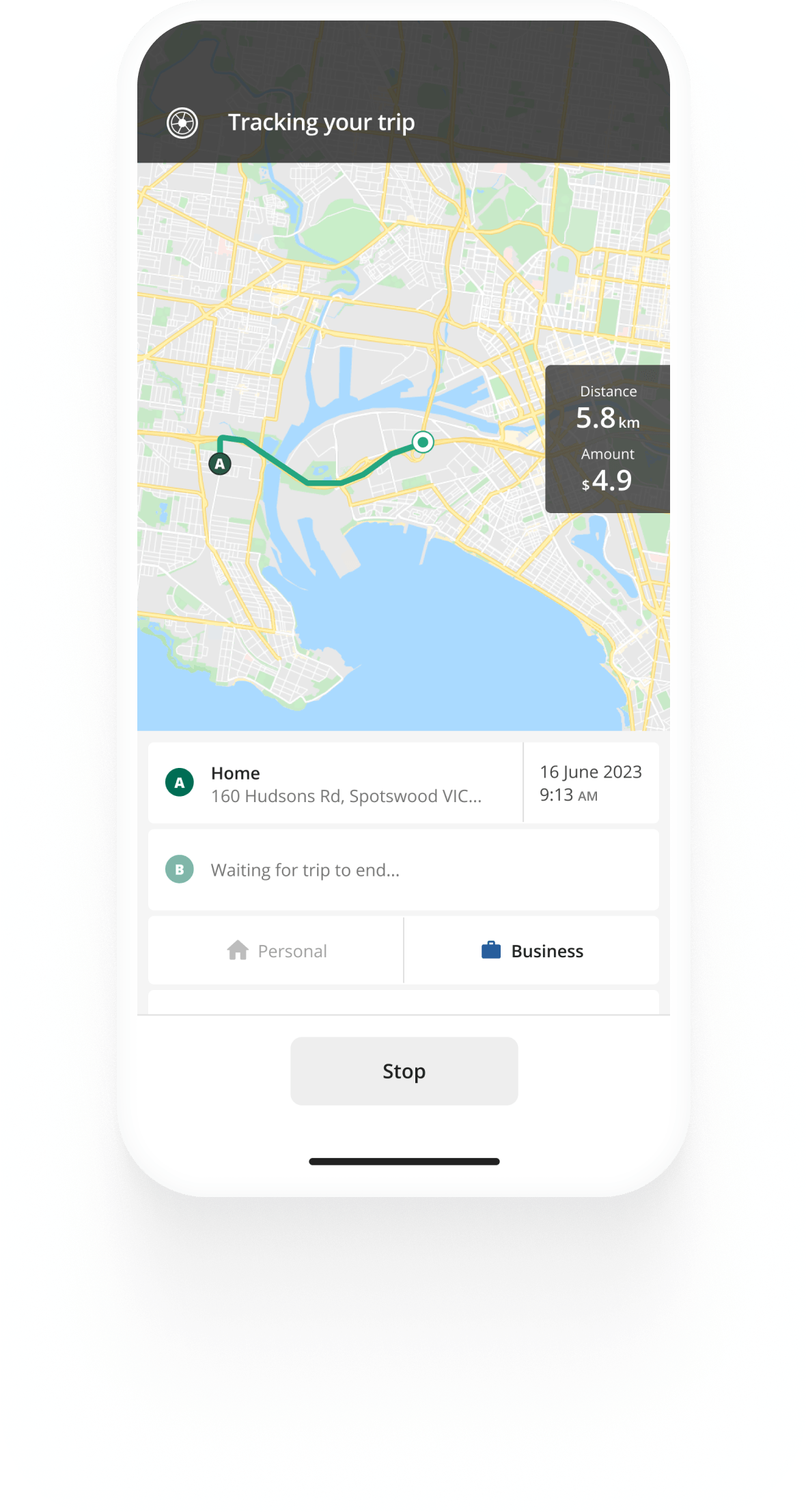Track mileage automatically
Get startedIs Car Expenses Reimbursement Taxed?
Sometimes! If you receive reimbursement from your employer based on the cents per kilometre method, it’s tax free. If you receive a car allowance it will be taxed.
But as with all things tax, there is a little more to it, which we will cover below.
How are you reimbursed for your car expenses?
If, as an employee, you are reimbursed by your company for business-related car expenses, you might have to pay income tax depending on the method the company uses. The most common methods of reimbursing employees in Australia are:
- a cents per km rate
- an actual expenses reimbursement
- a car allowance lump sum
You might receive car expenses reimbursement through one or both methods at the same time. The cents per kilometre rate serves to compensate you for the car expenses in connection to driving your car for work purposes, while the car allowance serves in place of being provided with a company car. Read more about what the two methods entail in our guide for employee reimbursement.
Depending on how your employer processes your car expenses claim, your reimbursement might be taxed.


Kilometre tracking made easy
Trusted by millions of drivers
Automate your logbook Automate your logbook

Automatic mileage tracking and ATO-compliant reporting.
Get started for free Get started for freeCents per km reimbursement tax
If your employer reimburses you only for the work-related expenses that you incurred (for example, fuel, parking, and road tolls), or if they use a standard cents per km rate (88 cents per km for 2025/2026) based on your actual business kilometres driven, this reimbursement is tax-free.
However, keep in mind that if you are reimbursed at a higher rate than the official one ATO has issued, the excess will be taxed as income.
Car allowance tax
Is car allowance taxable? The short answer is yes. Car allowance is considered a benefit, and not reimbursement and should appear on your payslip every time you receive the allowance. Car allowance is always taxed as part of your income. Car allowance tax is calculated based on your income tax bracket and will be taxed the same percentage.
How do I know if my mileage reimbursement was taxed?
If your payment summary from your employer shows that tax was withheld, then your reimbursement was taxed. If the payment summary doesn’t withhold any tax, then your reimbursement was tax-free. If you are in doubt, you can always ask your employer or accountant for help.
Can I still claim car expenses at tax time if I was reimbursed by my employer?
One important thing to remember - if you are reimbursed for your expenses and no tax was withheld, you can’t “double-dip” and also claim them as a tax deduction. This is because you have no longer paid the initial GST for those expenses - your employer has (by reimbursing you).
On the other hand, if your reimbursement had tax withheld, you can then claim those specific expenses as a deduction at tax time.
FAQ

Tired of logging mileage by hand?
Effortless. ATO-compliant. Liberating.
ATO Mileage Guide
- For Self-Employed
- For Employees
- For Employers
- The Cents per Kilometre Method
- The Logbook Method
- ATO Log Book Requirements
- Claim Car Expenses In 5 Simple Steps
- Calculate Your Car Expenses Reimbursement
- ATO Car Expenses Deductions
- Car Fringe Benefits Tax
- Is Mileage Reimbursement Taxed?
- Historic Cents Per KM Rates
- ATO Cents Per KM Rate 2021/2022
- ATO Cents Per KM Rate 2020/2021